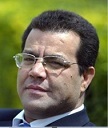| Sun. July 13, 2025 | |

|
|
|
 By Dr. Ali Murat Yel On 14 December 2014, the Istanbul Chief Public Prosecutor invited 31 individuals to submit themselves to police for questioning. These persons included journalists, media executives, TV filmmakers, scriptwriters and police officers of different ranks. While some members of the international media have been highly critical of this investigation, it should be noted that what is taking place has similarities to the 2011 phone hacking scandal in Britain, when police there detained and arrested more than 100 people from different professional backgrounds, 43 of whom were active or former journalists. For some media outlets, the fact that even one single member of the Turkish media is being detained and questioned is sufficient to label the Turkish government as opposed to freedom of speech. For those who are ready and willing to listen to the facts, it will become crystal clear that international media coverage has dismissed the criminal part of the investigation, which had a very solid background. This background needs to be addressed in detail for the public to get the complete picture. Each of the suspects in question are claimed to have ties to Fethullah Gulen, a religious cleric born in Turkey who is currently living in self-imposed exile in a small town in Pennsylvania. These suspects are being investigated regarding claims of defamation and fraudulent fabrication of evidence against a rival religious group to Gulen called Tahsiye. Confusion surrounding the connection to Gulen has led opinion leaders to quickly label the Turkish government as reacting to a political rival, when in reality it is administering the rule of law. This assumption lacks an understanding of the nature of the Gulenists. Here’s why this matters in Turkey: In the course of a few years, followers of Gulen residing in Turkey used popular media channels to voice opposition to Tahsiye led by a man named Mehmet Dogan. Conflict between the rival groups inflamed public opinion while slanderous information concerning the Tahsiye was published through Gulenist media outlets in an orchestrated manner. The Tahsiye was made the target of Gulenist media, accused by Gulen himself of being “a radical group which can be manipulated to create terror and chaos in Turkey.” The possibility of coordinated efforts between Gulen media and the police force led to the investigations. On January 22, 2010, as part of the “Tahsiye Investigations,” 122 suspects were detained in Istanbul, all claimed to have ties to Tahsiye. Latest information suggests that the evidence against Dogan and his followers may have been fabricated, leading to the current investigation involving members of the police and media. Some suspects are employees or executives at major media in Turkey Zaman newspaper and Samanyolu TV, both of which are viewed as flagships of the Gulen community. Mehmet Dogan, the leader of the Tahsiye group, remained in prison for 17 months and was then released on lack of substantive evidence. After he was released, Mehmet Dogan made a strong denunciation, stating that he had been a victim of slander. In the last few years, the Turkish government has made great strides to bring full transparency to its judicial system while scrutinizing the police force to ensure that it is abiding by the judicial process and respecting the rule of law as established by democratic governance. The December 14 investigation has been launched on the complaints of individuals associated with Tahsiye group. They accuse the suspects of forgery of evidence and slander. The fact that some of the suspects are members of the media cannot and will not make them immune to rule of law. While it’s easy to paint the arrests as a freedom of speech issue, doing so dismisses the fact that real wrongdoing may have occurred. Here’s where the issue stands now: Almost all people sought for interrogation and cross examination submitted themselves to police on their own accord upon request from the public prosecutor, and the large majority were released shortly thereafter. In Turkey, as in the U.S., news media regularly exercises free speech whether it be for or against the policies of the government. That members of the media are currently under investigation should not be confused as an oppression of free speech. Media throughout Turkey continue to publish diverse opinions concerning the investigation as they do regarding the Turkish government each day. In the case of the two rival religious groups, the current investigation must be allowed to get to the bottom of what wrongdoing occurred and who, if anyone, is culpable. Media can be quick to judge, but the rule of law needs time to provide a fair analysis. Before jumping to conclusions, we should endeavor to gain a meaningful exanimation of those charged. In the meantime, let it be clear that Turkey’s judicial system will conduct a proper due process of law.
Dr. Ali Murat Yel is a professor at the School of Communications at Marmara University in Istanbul. He graduated from the School of Divinity at Selcuk University and holds a graduate degree in sociology and anthropology from the School of Oriental and African Studies at London University and a Ph.D. in anthropology from the London School of Economics. Dr. Yel has written numerous articles and books on perceptions of Islam in the West, Islam and modernization, secularism and modernization in Turkey, and Islamophobia and Catholicism. He is currently editor-in-chief of TurkeyAgenda, which provides political analyses, essays, interviews, and covers current events in Turkey.
|
|
| Contact Us | About Us | Donate | Terms & Conditions |
|
All Rights Reserved. Copyright 2002 - 2025
